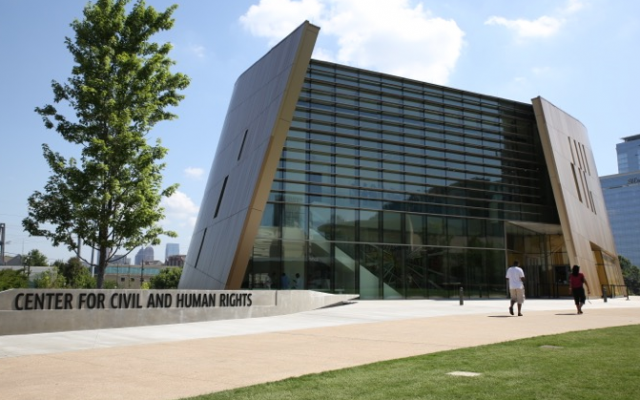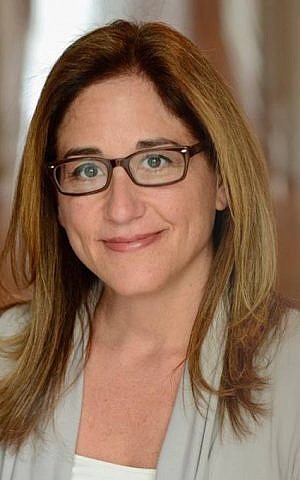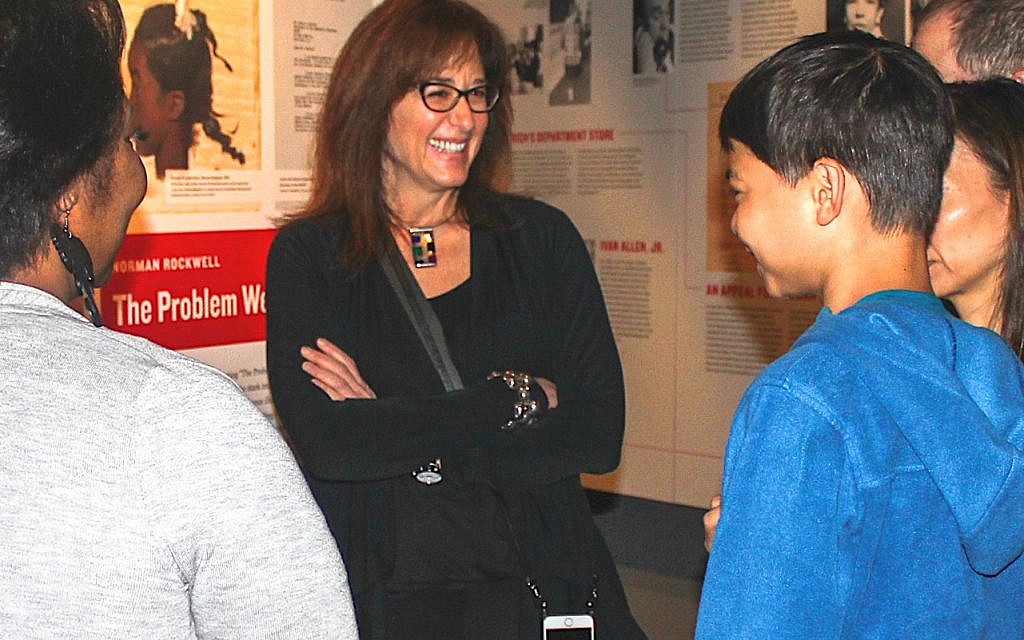New Head of Civil and Human Rights Center Sets Direction
For more than 25 years Jill Savitt, the new director of Atlanta’s National Center for Civil and Human Rights, has been a prominent human rights activist.

For more than 25 years Jill Savitt, the new director of Atlanta’s National Center for Civil and Human Rights, has been a prominent human rights activist. She grew up in the Jewish community in Miami and has also been an educator and curator. As a consultant, she led the creation of the center’s human rights exhibit. Before coming to Atlanta last month, she spent the last nine years on the staff of the United States Holocaust Memorial Museum in Washington, where she headed the international genocide prevention program.
The AJT caught up with Savitt several weeks into her new position.
AJT: As the center’s new director, what do you see as some of the more important challenges you face?
Savitt: I think one of our challenges at this national center is to figure out our institutional role in the public conversation about human rights and civil rights in this country and around the world. I think the center is a place for people to come together and have a serious conversation about what is a citizen’s role in a democracy. What is the government’s obligation to its people? How do we deal with each other when we disagree? How do you organize if you see an injustice? What’s the best way to go about it? The story we tell in the center provides a jumping off point to have that conversation.

AJT: How would you answer those in the Jewish community in Atlanta who may have felt that there has not been enough emphasis at the national center on the human rights aspects of discrimination?
Savitt: It would be too bad if the Jewish community didn’t feel a part of this because it is certainly our legacy as Jews. Human rights came into being as a result of the atrocities of World War II. The collective guilt of the international community made it possible for mainly Jewish lawyers like Raphael Lemkin to say we need certain laws and standards. We’re not going to let this happen again. It is an outrage to the conscience of mankind what happened to the Jews in the Holocaust.
The whole U.N. system and all its laws and policies were created by Jews and is the result of the Jewish experience. It really is based on Judeo-Christian tenets of human dignity and how we treat each other, so Jews have a right to feel very attached to that story. And now that I’m here, I hope to do more programming on human rights because that’s what I know.
AJT: How do you think the national center could take a more active role in promoting a human rights agenda?
Savitt: One of my dreams has been to start a human and civil rights campaign school here where we teach the techniques of how to organize against injustices we see in society. We’d like to do something this fall just for girls around International Day of the Girl Child and do a campaign academy for young women. We’re just going to get started and see what the response is. And if it’s a good response we’re going to pursue it wholeheartedly. We won’t do the work of human rights campaigning ourselves here at the center, but I think of us as the advocates’ advocate.

AJT: In the past, the center has seemed more like a museum than a center that promotes a public dialogue about civil and human rights. Do you have any plans to change that perception?
Savitt: We hope to engage the broader community in that conversation. There are legitimate differences of opinion about key issues that face us. And right now people are talking right past each other. It almost feels intentional. We could be a place that actually has a respectful version of that conversation where you can agree to disagree, but not be disagreeable while you do it.
AJT: How important is the work of the center?
Savitt: I think that the venture to tell the story of human rights and, more importantly, the values of civil and human rights to a wide audience is critical in a democracy. These are core values about human dignity and how we treat one another and the importance of the rule of law and the way citizens come together as a civil society to be in a contract with each other, and government and corporations. And I can’t imagine a more important mission than to show those values in a very compelling and dynamic way. I am very committed to this place.



comments